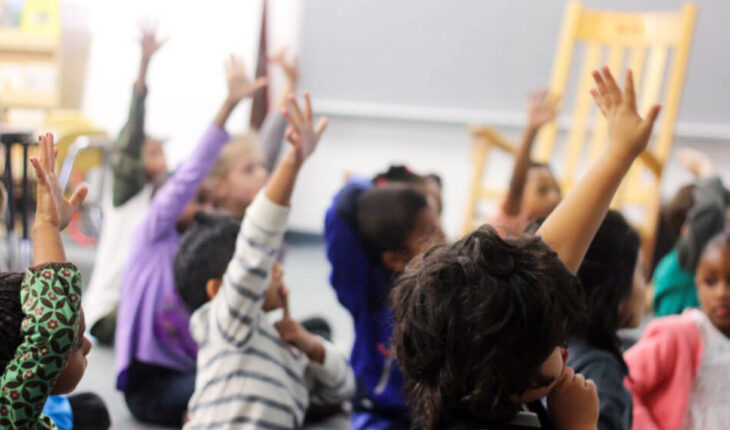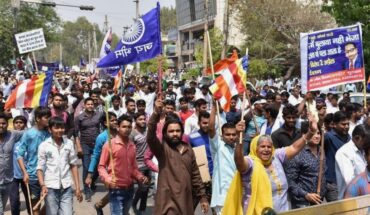Hamid Ansari believes the plan to rationalise the syllabus will help in making good citizens
The list of jettisoned subjects is comprehensive; the apprehension that it is purposeful is unavoidable; the conclusion that a ‘happening’ has been converted into a ‘penalty goal’ is inescapable. These thoughts cross the mind while reading about the decision of the Ministry of Human Resource Development (MHRD) to exclude certain subjects from the list of topics of study in the social science curriculum for Classes 9 to 12 with the objective of reducing by 30% the “load” while retaining “core concepts”. The stated rationale of the move is the disruption caused by COVID-19 to the academic year. The exercise covers other subjects too, but the focus of this analysis is on the social sciences only for reasons that will become evident in this essay.
The argument for disruption and the resultant load is self-evident and valid. The phenomenon is universal and applies to all stages of education and to all lands across the globe. Not all have reacted the same way and pedagogues would argue that there could be more than one method of lightening the academic load that in any case predates the pandemic. Democratic societies the world over have developed methodologies of nurturing young citizens in essential values and procedures and none have so far abandoned them on account of the pandemic.
The Central Board of Secondary Education (CBSE) on its website indicates nine salient features of the senior secondary school curriculum for Classes 11 and 12 for the years 2020-2021. It mentions that the curriculum strives to “provide ample scope for physical, intellectual and social development of students”. The curriculum also strives to “uphold Constitutional values such as Socialism, Secularism, Democracy, Republican character, Justice, Liberty, Equality, Fraternity, Human Dignity of Individual and Unity and integrity of the Nation by encouraging value-based learning activities.” With some abridegments, therefore, the features reiterate the values mentioned in the Preamble of the Constitution of India. Item 4 of the salient features says the curriculum strives to “nurture Life-Skills by prescribing curricular and co-curricular activities to help improve self-esteem, empathy towards different cultures etc.” There is, however, no mention of Fundamental Duties (Article 51A of the Constitution); of the duty “to value and preserve the rich heritage of our composite culture” and of the duty “to develop the scientific temper, humanism and the spirit of enquiry and reform”. The wording here is curious. Are “different cultures” synonymous with our “composite culture”? Is it an admission that ours is a land of “different cultures”?
It would be argued in defence of abridgements that the CBSE curriculum for Classes 9 and 10 has identical wording for items 3 and 4 and that the themes are therefore covered at an earlier stage of school education. This is to presume that levels of student comprehension between Classes 9 and 11 or 10 and 12 remain static and do not need upgradation either in teaching or in understanding.
Our system of democratic governance is based on the Constitution that prescribes universal adult suffrage with the voting age now being 18, after the 61st Amendment of 1988. It was then argued formally in Parliament that “the present-day youth are literate and enlightened and the lowering of the voting age would provide to the unrepresented youth of the country an opportunity to give vent to their feelings and help them become a part of the political process. The present-day youth are very much politically conscious. It is, therefore, proposed to reduce the voting age from 21 years to 18 years.’
In other words, and since the general average school-leaving age after Class 12 is 16-17 years, this objective of being “politically conscious” is to be attained suddenly at the age of 17 and without the benefit of formal instruction on fundamental principles of our polity. And if this formal instruction on the principles of the Constitution is not available to the young person at that age, she or he has no option but to resort to informal knowledge acquired through hearsay and media or social media with all the tilt or prejudice of demagogy and propaganda that go with it. Would the young person exercising franchise for the first time then be an informed voter?
In this context, it is useful to examine the relevant portions of the Draft National Education Policy 2019 with a Message from the Minister of Human Resource Development. It has on page 96 a section on ‘Development of Constitutional Values’. It states that “the process and the content of education at all levels will also aim to develop Constitutional values in all students, and the capacities for their practice… Some of these Constitutional values are: democratic outlook and commitment to liberty and freedom; equality, justice, and fairness; embracing diversity, plurality, and inclusion; humanness and fraternal spirit; social responsibility and the spirit of service; ethics of integrity and honesty; scientific temper and commitment to rational and public dialogue; peace; social action through Constitutional means; unity and integrity of the nation, and a true rootedness and pride in India with a forward-looking spirit to continuously improve as a nation.” The same document, on page 231, reiterates the objective of developing “an understanding of our Constitutional values, and the disposition and capacities for their practice, amongst all their students.” The other objectives mentioned in this section are diversity, plurality humanness, fraternal spirit, scientific temper and commitment to rational dialogue.
Will these virtues and constitutional values and capacities for their practice be developed without formal instruction? Would this necessarily be the best training for citizenship? Could the objective be to lessen the instruction in constitutional values and their impact on perceptions and practices of the next generation?
The BJP’s Sankalp Patra for the 2019 general election mentions in several places the objective of good governance and of putting in place for it “a framework of governance which will yield rich dividends over the next generation”. This focus on the next generation requires good citizens who in turn need to be educated in good governance. This is precisely what the objective of the jettisoned items of the curriculum was intended to be. The proposed move of load-shedding goes counter to this and strikes at the target of training good citizens and teaching them civility. Would a sceptic be justified in suspecting that the objective may be to have a less literate young voter?
Hamid Ansari is the
former Vice-President of India,
2007-2017





